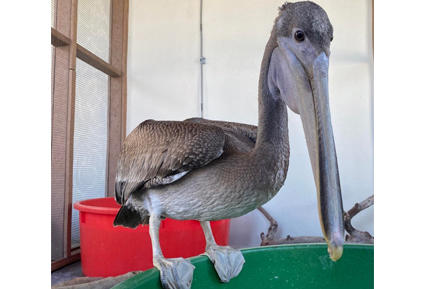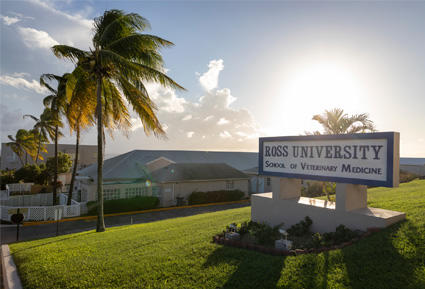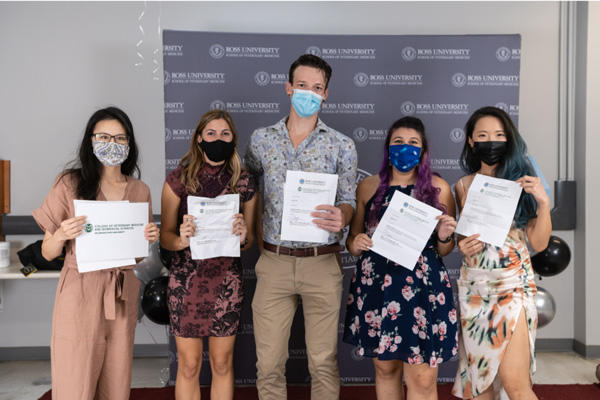Ross University School of Veterinary Medicine (Ross Vet) faculty members – Maria Jose Navarrete Talloni, DVM, MVPM, PhD; Luis Pablo Herve Claude, DVM, MVPM, PhD; and Elpida Artemiou, BSc, MSc, PhD, AFAMEE – have been awarded a Walden University Research and Applications for Social Change Grant (RASCG). The grant, valued at $10,000USD, will go toward the development of a cultural competency communications program for veterinary students during their preclinical years. The RASCG program was established in 2016 to support projects aimed at significant and meaningful change in academic and social communities, both locally and globally.
With their grant, Drs. Talloni, Claude, and Artemiou, along with Cornell University DVM candidate Mariacamila Garcia Estrella, seek to develop a Clinical Communication Program that will teach veterinary students' cultural competency, particularly around Latinx clientele and farmworkers Ross Vet students will participate in an online learning module during their seventh semester that incorporates real case scenarios from the Latinx community. The online learning modules are anticipated to be finished and in use by seventh semester students during the Fall 2022 semester.
“This project is unique since it will provide an opportunity for future veterinarians to be culturally prepared and approach a societal gap that will benefit the whole veterinary profession,” said Dr. Talloni.
“This grant will allow us to provide veterinary students a glimpse [into] one of the largest minorities across the United States and in agriculture. By facilitating the understanding of their (our) culture, we could enable interactions, better medicine, better public health and lessen inequality for this and other groups…that is one of the first steps towards DEI and a better and equitable world.”
Supporting DEI initiatives has been one of the career callings for all three faculty members. Dr. Claude shared his personal perspective as a native Chilean, "I am an experienced foreigner. I have lived and worked in several places, both in my home country of Chile and in other places of the world. I have experienced being different in so many ways. Sometimes, you feel good when you are an expert from abroad, and sometimes you feel bad being looked at as the guy that comes from some Latin country nobody ever remembers. In both situations, it has been a relevant and impactful experience. Sometimes you feel valued, but other times ignored and diminished. Now that we know these situations are part of the daily lives of minorities in veterinary medicine, we cannot ignore them. We must work towards addressing these issues looking for a better learning atmosphere for all of us.”
For Dr. Artemiou, there is much excitement in what can be accomplished with introducing new ethics and humanities-based courses within Ross Vet’s curriculum. “Ross Vet continues to support and enhance DEI through its admissions processes as well as research informing curricular and programmatic changes.” She added, “veterinarians are increasingly encountering clients with different ethnic and social backgrounds, and there is greater importance of intercultural communication and understanding DEI to decrease inequalities in patient care.”






